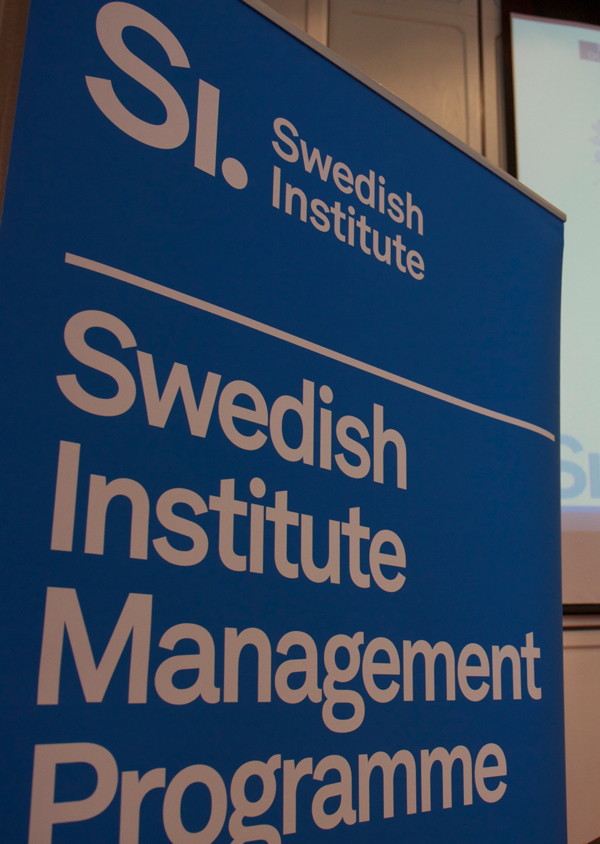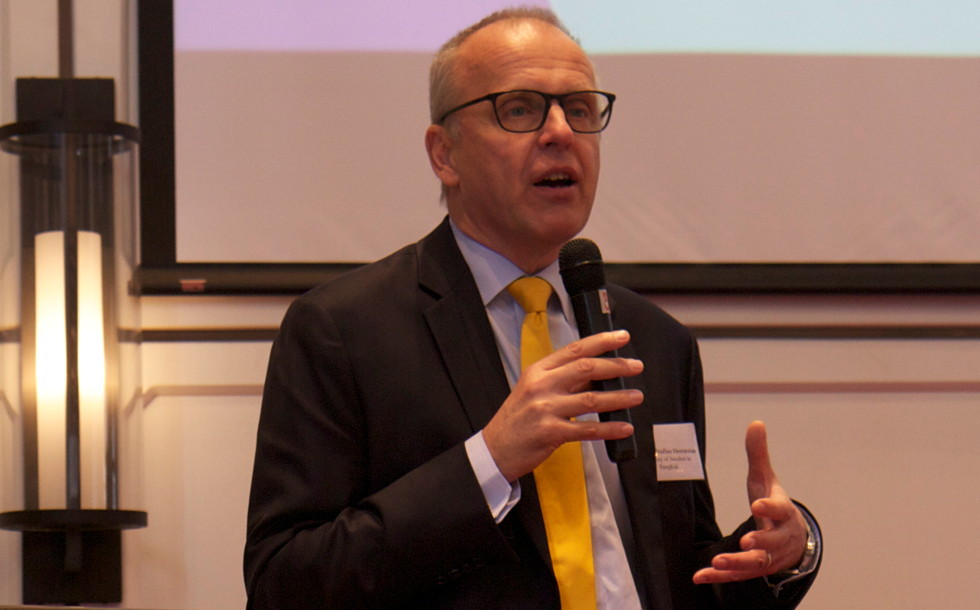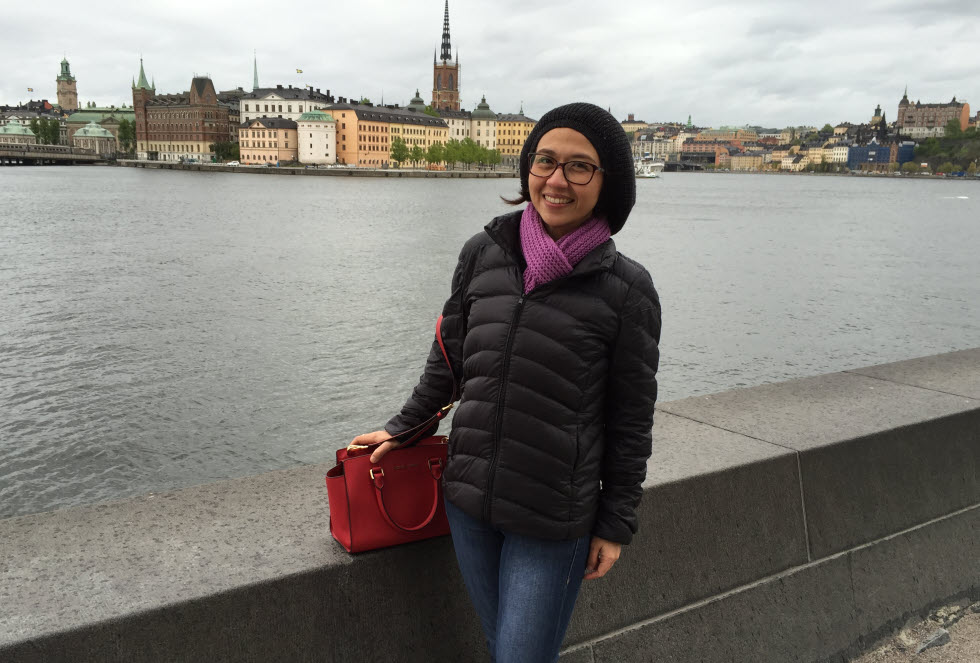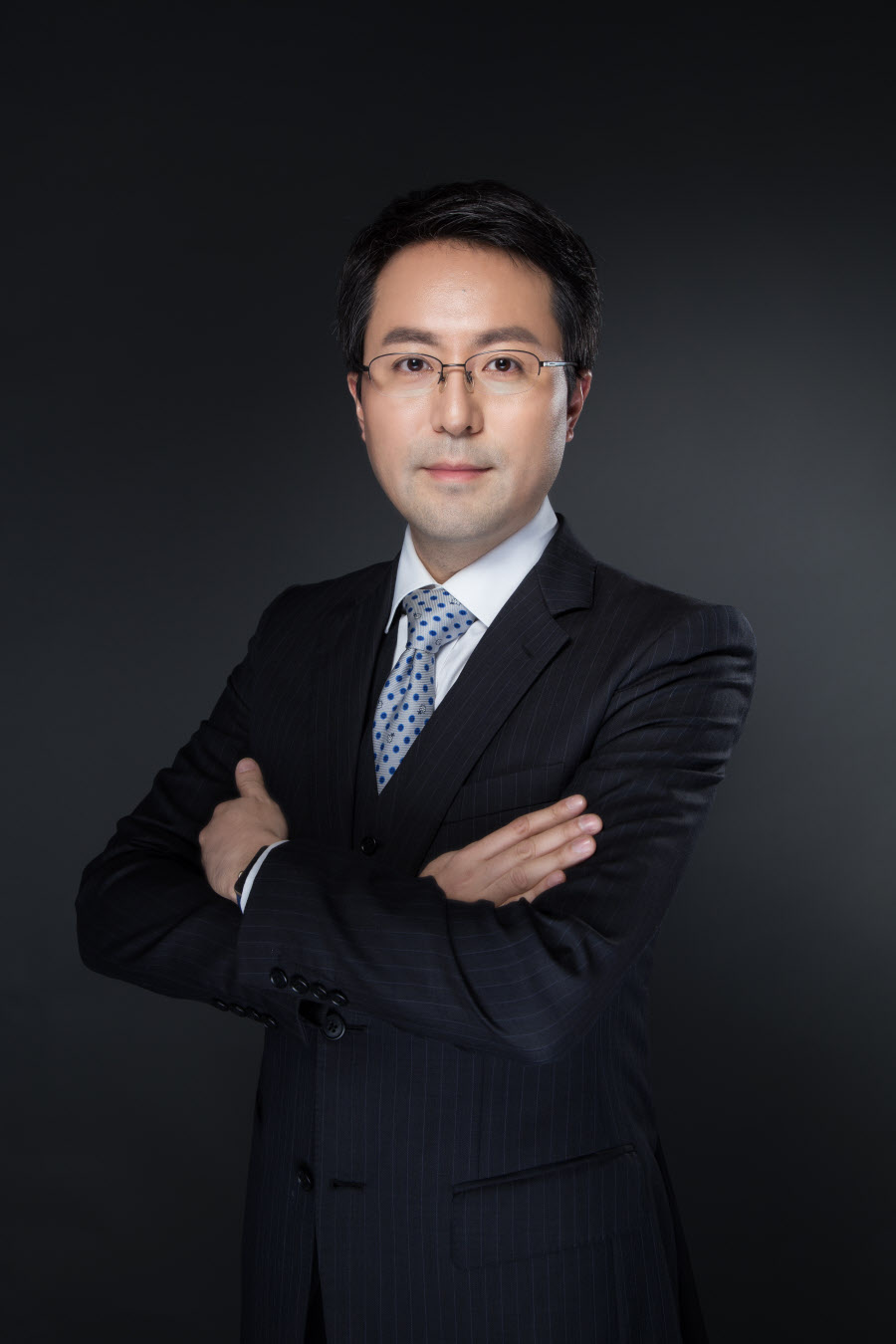Swedish Institute’s Management Programme – SIMP – has implemented a new approach to promote sustainability in Asia ((supported by Enact, a sustainability consultancy firm in Stockholm) by focusing on building an active network of open-minded leaders interested in promoting improved relations and business cooperation between the participating countries and Sweden.
 Targets are in their mid-career, between the age of 25 and 45, from China, India, Indonesia, the Philippines, Thailand and Vietnam looking to Sweden for inspiration to broaden their management skills and holistic approach to business.
Targets are in their mid-career, between the age of 25 and 45, from China, India, Indonesia, the Philippines, Thailand and Vietnam looking to Sweden for inspiration to broaden their management skills and holistic approach to business.
The wider goal of this management programme is to establish a strong global network of leaders, including from Asia, for the long term.
In 2016 the programme comprised three weeks of intensive training divided into two introductory kick-off days in Asia, a two-week module in Sweden and a concluding five-day module in Asia.
This last module took place in Thailand where the Swedish Institute and the Swedish Embassy in Thailand on 12 October organised an interactive business seminar on the role of business in sustainable development as one ingredient.
A key speaker was CEO Vikrom Kromadit of Amata Corporation, which was also the place for a site visit in Thailand.
Opening the seminar H.E Sweden’s Ambassador to Thailand Staffan Herrström shared his and Sweden’s approach and views on the topic of sustainability.

“How much of a priority is this for the government I represent as an ambassador among all the other priorities? The simple answer is: very much! Sweden is a small, free trade-oriented nation with strong commitment to the environment and human rights; hence the necessity to integrate sustainability into to business. Not CSR as an external philanthropic activity; but sustainable business as core business for any company.
“This message about the character of sustainable business also came out loud and clear at the Swedish-SEA B summit that was recently held in Singapore. And it’s not a surprise; consumers increasingly demand sustainability, reject child labour, and exploitation. But even more, this approach means that the private sector is being part of the solution to societal problems, global challenges. Not only minimizing the neg. impact of business but also maximizing the positive impact on poverty, climate and environment. We were happy to see companies working in that direction when we had the smart city delegation here,” continued the ambassador.
Sweden is initially using its substantial development cooperation programme not least to strengthen the conditions for sustainable business, but do it also in many ways; cooperation with civil society, multinational organisations, ASEAN CSR network, he informed.
Staffan Herrström also pointed to the need for freedom of expression – “the kind of conditions that are necessary for progress within society, for new ideas to emerge, for mistakes to be corrected, for societies to develop in a sustainable way. Not least, the free press, free debate, provide the necessary tools for exposing bad practices, spreading good practices of course, also pushing companies to get their work with the supply chain in order.”
Many excuses that countries give for imposing restrictions on freedom of speech are misleading according to the ambassador: “To manage conflicting opinions you need space for free debate. To foster a knowledge-based economy you need societal climates where authorities can be questioned.”
Two executive leaders attending the programme shared some insights with ScandAsia.
Oliver Ye Yang, Deputy Secretary General of Shanghai Soong Ching Ling (SSCIF, a public welfare foundation), has been working in the field of corporate social responsibility ever since 2005 and he said they have a quite active CSR practitioner’s group in China. He started his CSR career with The American Chamber of Commerce in Shanghai building up from scratch the Chamber’s CSR programme during eight years.
Wulandari Setyaningsih is Head of Legal at the French company Sanofi Indonesia said the SIMP Asia is designed to benefit her organisation as well through the individual project that each participant most select

Wulandari said that sustainable business is not a common concept in Indonesia.
“Working in the pharmaceutical industry it’s a sensitive, a highly regulated industry, I really wanted to know how a sustainable business concept can be implemented in the pharmaceutical industry.”
“CSR in Indonesia is mostly limited to philanthropic activities or giving donations, doing something for the community; it’s a one stop activity, with no follow up,” she reflected.
“When we had the module in Sweden, all the concepts and ideas we got from the speakers in Sweden were from western point of views. But then when we reflected what we learned I think it can be doable in Asia. But the next question is actually how, because running business in Indonesia is still profit-driven business and making it sustainable from environmental, human rights, responsible supply chain point of view, it means more investment, but it’s not impossible. It’s about how we can educate, actually. It was an eye-opener.”
Personally she learned insights about the gender inequality, something as a normal thing in Asia because of their culture and religious background.
“Never ever did I question it, but after I got all the knowledge I started to realise that gender inequality happens in Indonesia and it’s not fine! And: ‘How can I make it better, how can I start a network to raise these issues?’
Wulandari said that she would follow up on this idea with the Embassy of Sweden in Jakarta.
 Oliver Ye Yang’s motivation was mainly to refresh his knowledge on sustainability development and CSR – and he had heard a lot about how Scandinavian countries being leaders within sustainability.
Oliver Ye Yang’s motivation was mainly to refresh his knowledge on sustainability development and CSR – and he had heard a lot about how Scandinavian countries being leaders within sustainability.
“I wanted to learn more about best practices, since our foundation basically facilitates the companies and advices them and also to allocate resources for them to better implement their CSR programme or design a CSR strategy. So the best practice I see from SIMP Asia can be replicated and be passed forward to our partners or potential foundations partners.”
His focus was to update their grant making policy and develop a programme to see if they could use their resources to further foster civil society.
It’s not only one-way, now it’s really globalisation and because of that part of the value chain or supply chain.
The visit to Sweden he found as most interesting, getting to understand the global impact and dynamics of business through the value and supply chains.
According to Oliver, the special value of the program was bringing the participants together to achieve an influence in their home countries.
“In ten or twenty years from now you can imagine what the alumni network will have become! It’s significant, amazing, I would say! Any time someone wants to establish a concrete, solid programme to address certain business issues, regarding sustainability, he or she will through this network have the possibility to mobilise dozens of people from different backgrounds and working in different sectors.”
As for the status of sustainability in China he said that there is still tremendous amount of work to do.
“A tiny percentage of companies are today able to develop their business in a sustainable way. The majority, big companies or SMEs are still stuck with traditional models. So there’s huge responsibility for people working in the sustainable development field,” he said, though optimistic about the room for implementation.
Wulandari agreed concerning the value of the network: “Owners of businesses, directors, and high level of management participating have the influencing power – in their organisations at least. So I see that a network can be created that we can greatly benefit from having, and learn from each other. Also organising Swedish Institute are flexible, they listen to us and ask what one wants to learn.”
